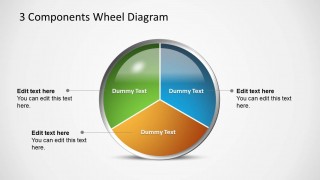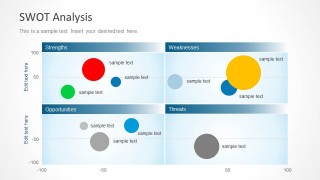Learn more how to embed presentation in WordPress
Copy and paste the code below into your blog post or website
Copy URL
Embed into WordPress (learn more)
Comments
comments powered by DisqusPresentation Slides & Transcript
Presentation Slides & Transcript
Future time vs Future tensesTHE FUTURE
We can be certain about the past and the present, but we cannot be certain about the future because we are talking about things that haven’t happened yet!That’s why when using the future tenses it is important to know how sure we are that things will happen.Future time vs Future tenses
FUTURE TENSES:WILLBE GOING TOPRESENT CONTINUOUSPRESENT SIMPLEFuture time vs Future tenses
WILLFOR PREDICTIONSusually with the verbs THINK, BELIEVE, EXPECT, etc and with adverbs like PERHAPS, CERTAINLY, PROBABLY, etc.Future time vs Future tensesI think she’ll certainly pass the exams. She has worked very hard.Because of medical advances we will probably live longer.
WILLFOR OFFERS AND DECISIONS TAKEN ON THE SPOTFuture time vs Future tensesI’ll take it. It suits me perfectly.I’ll help you with your homework.
WILLFOR ACTIONS, SITUATIONS AND EVENTS WHICH WILL CERTAINLY TAKE PLACE Future time vs Future tensesShe’ll be 18 next month.
BE GOING TOFOR PLANS AND INTENTIONSFuture time vs Future tensesI’m going to study harder next term.They are going to travel around the world for their honeymoon.
BE GOING TOFOR PREDICTIONS WHEN THERE IS EVIDENCE THAT SOMETHING WILL HAPPENFuture time vs Future tensesLook at the sky! It’s going to rain.She’s going to have a baby.
PRESENT CONTINOUSFOR FIXED ARRANGEMENTS IN THE NEAR FUTUREIn particular social arrangements and appointments.A time expression is common.Future time vs Future tensesThey are going to the museum tomorrow.
PRESENT SIMPLEFOR PLANNED EVENTSUsually scheduled events on a programme or timetable.Future time vs Future tensesThe play starts at 8 o´clock.
PROBLEMS?WILL OR BE GOING TO?BE GOING TO OR PRESENT CONTINUOUS?Future time vs Future tenses
WILL OR BE GOING TO?They are both used for predictions but if there is strong evidence in the present situation, then BE GOING TO is used.We often use “I think” and “I hope” with WILL.Future time vs Future tensesI think James will become a spy.There are lots of different models nowadays so tablets are going to become cheaper.
BE GOING TO OR PRESENT CONTINUOUS?Going to can suggest that the action or event is still an open plan and the present continuous means that the arrangement is more fixed.We usually specify a future time (present continuous)Future time vs Future tensesThis year I am going to travel a lot and visit my friends.We are taking the plane in 30 minutes.
“Be going to” is rarely used with the verbs GO and COME. The forms “I’m going” and “I’m coming” are preferred to “I’m going to go/come”Future time vs Future tensesWe are going to Italy on holiday. (We are going to go to Italy on holiday)
OTHER WAYS OF EXPRESSING FUTURE TIMEMIGHT ( FUTURE PLANS)MAY / MIGHT / COULD (PREDICTIONS)BE LIKELY TO (PREDICTIONS)Future time vs Future tenses
MIGHT (FUTURE PLANS)When we are unsure what the plan isI might go to Lisbon and visit you.Future time vs Future tenses
MAY / MIGHT / COULD (PREDICTIONS)Uncertain predictionsThere’s heavy traffic. You may / might be late if you don’t leave now. (“May” is stronger than “Might”)Rain forests could be destroyed if we don’t do something to avoid global warming.Future time vs Future tenses
BE LIKELY TO (PREDICTIONS)To make predictions when something is probableYou are likely to get the job if you answer all the questions correctly.Future time vs Future tenses





